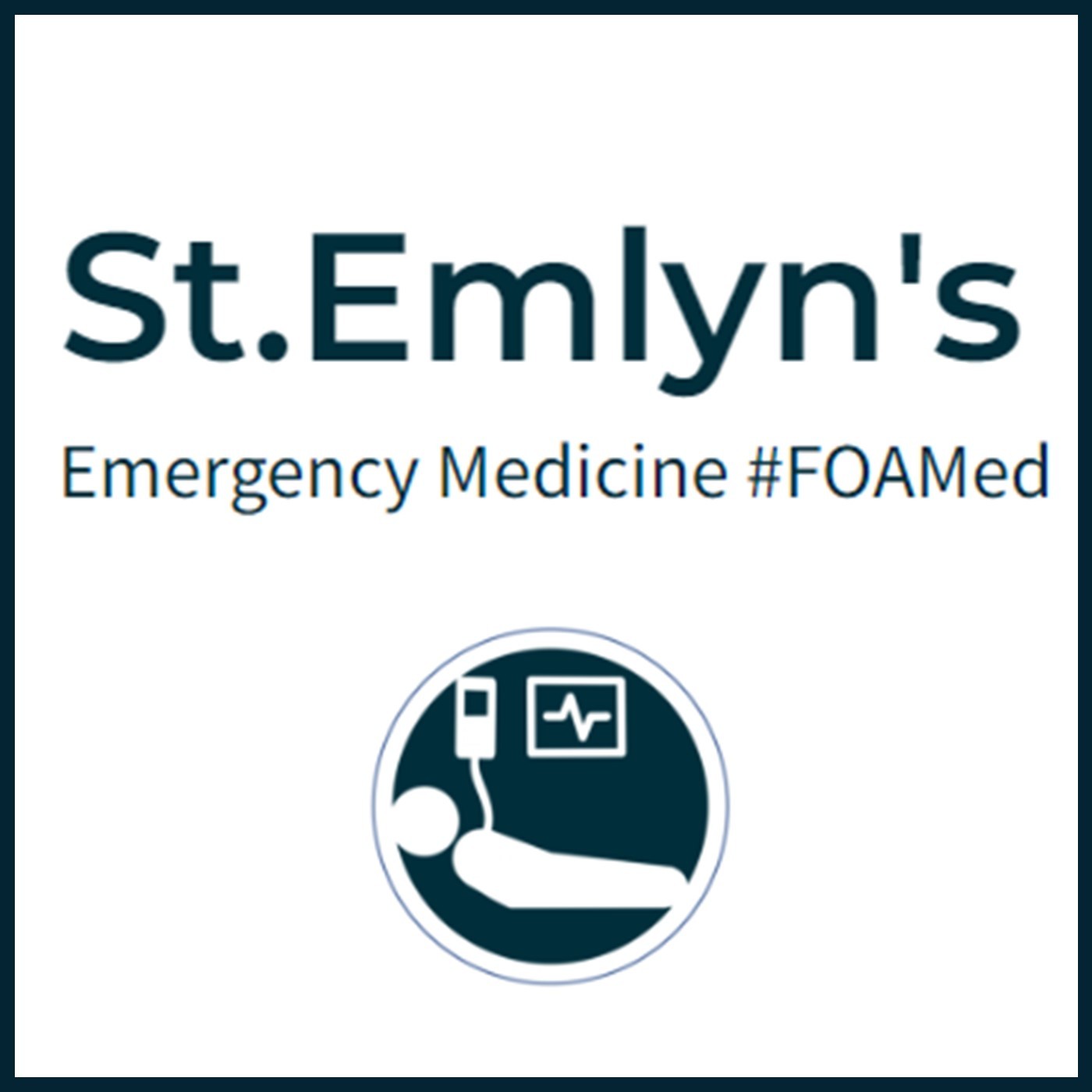
1.3M
Downloads
287
Episodes
A UK based Emergency Medicine podcast for anyone who works in emergency care. The St Emlyn ’s team are all passionate educators and clinicians who strive to bring you the best evidence based education. Our four pillars of learning are evidence-based medicine, clinical excellence, personal development and the philosophical overview of emergency care. We have a strong academic faculty and reputation for high quality education presented through multimedia platforms and articles. St Emlyn’s is a name given to a fictionalised emergency care system. This online clinical space is designed to allow clinical care to be discussed without compromising the safety or confidentiality of patients or clinicians.
Episodes

Wednesday Aug 17, 2016
Ep 76 - Communication workshop with Liz Crowe (SMACC DUB)
Wednesday Aug 17, 2016
Wednesday Aug 17, 2016
Optimizing Communication in Healthcare: Key Takeaways from the SMACC Conference
At the recent SMACC conference in Dublin, a notable workshop led by Liz Crowe and Steve Philpott focused on enhancing communication skills in healthcare. This workshop emphasized the importance of understanding one's own communication style and how it impacts interactions with patients, colleagues, and even personal relationships.
Understanding Communication Styles
The workshop began by highlighting that communication is influenced by personality traits, which shape how we express and receive information. One key distinction is between extroverts and introverts. Extroverts often gain energy from social interactions and tend to speak quickly, sharing ideas readily. In contrast, introverts recharge through solitude and may take longer to articulate their thoughts. Recognizing these traits is crucial in healthcare settings, where both types bring valuable strengths to a team. For instance, extroverts may lead discussions and drive actions, while introverts often provide thoughtful insights after careful consideration.
Balancing Team Dynamics
A critical takeaway was the importance of having a balanced mix of personality types within a team. A group dominated by extroverts might lack depth in decision-making, while a team of introverts might struggle with timely execution. Effective teams combine these traits, ensuring diverse perspectives and approaches. For example, when tackling tasks like developing protocols or organizing events, having both meticulous "get it right" individuals and efficient "get it done" members ensures thorough and timely outcomes.
Practical Communication Strategies
The workshop provided several practical strategies to improve communication:
1. Signposting
Signposting involves clearly highlighting key points throughout a conversation, ensuring they are understood and remembered. In healthcare, this technique is essential for communicating critical information, such as diagnoses or treatment plans. By repeatedly emphasizing important messages, healthcare professionals can help patients and families grasp complex information more effectively.
2. Avoiding "But"
A simple yet powerful language adjustment discussed was avoiding the word "but." Using "but" can negate the positive aspects of a statement, creating a dismissive tone. Instead, substituting "but" with "and" maintains a constructive dialogue. For example, saying, "You did a great job, and improving your time management will make you even more effective," keeps the conversation positive and forward-looking.
3. First and Last Impressions
The first and last things said in a conversation are often the most memorable, especially in stressful situations. Setting a serious tone at the beginning of a difficult conversation and summarizing key points at the end ensures that the main messages are clear. This approach is crucial when delivering bad news or discussing sensitive topics, as it helps manage expectations and emotions.
4. Chunking Information and Allowing Pauses
Breaking down complex information into smaller, manageable chunks and allowing pauses helps listeners process and understand better. This technique is particularly useful when communicating with patients and families who may be overwhelmed with medical jargon and stress. Pauses give them time to absorb the information and ask questions, demonstrating empathy and patience.
Handling Difficult Conversations
Discussing sensitive topics, such as poor prognosis or end-of-life care, requires a careful balance of empathy and honesty. The workshop emphasized acknowledging optimism bias—the tendency to hold onto hope even when the prognosis is poor. Healthcare professionals should acknowledge the family's hope while gently grounding them in reality. For example, expressing understanding of their hopes while clearly stating the medical expectations helps families navigate difficult emotions.
The Platinum Rule
The platinum rule, which goes beyond treating others as you would like to be treated, focuses on treating others as they would like to be treated. This involves understanding the communication preferences of patients and families. Some may prefer detailed explanations, while others might want a broader overview. Asking about their preferences and tailoring the communication accordingly enhances their sense of control and satisfaction.
Staying Connected
Maintaining a connection with patients and families is crucial, especially in challenging situations. While outcomes may not always be within control, the process of communication is. Ensuring that patients and their families feel heard, respected, and supported can make a significant difference in their healthcare experience. This connection is not just about delivering information but also about showing empathy and understanding.
Conclusion
The SMACC conference workshop provided invaluable insights into improving communication in healthcare. By understanding our own communication styles, appreciating the strengths of different personality types, and employing practical strategies like signposting, avoiding "but," and using the platinum rule, healthcare professionals can enhance their interactions with patients and colleagues. Effective communication is not just about conveying information; it's about building trust, understanding, and a positive work environment.
These skills are essential for providing high-quality patient care and fostering a supportive workplace culture. The workshop highlighted that good communication can prevent misunderstandings, reduce the likelihood of complaints, and ultimately save time. By investing a few extra minutes in effective communication, healthcare professionals can significantly improve patient outcomes and satisfaction.
In summary, the key to effective communication in healthcare lies in understanding ourselves and others, being clear and empathetic, and continuously refining our skills. Whether in patient interactions or team collaborations, these principles help create a more compassionate and efficient healthcare environment.

No comments yet. Be the first to say something!